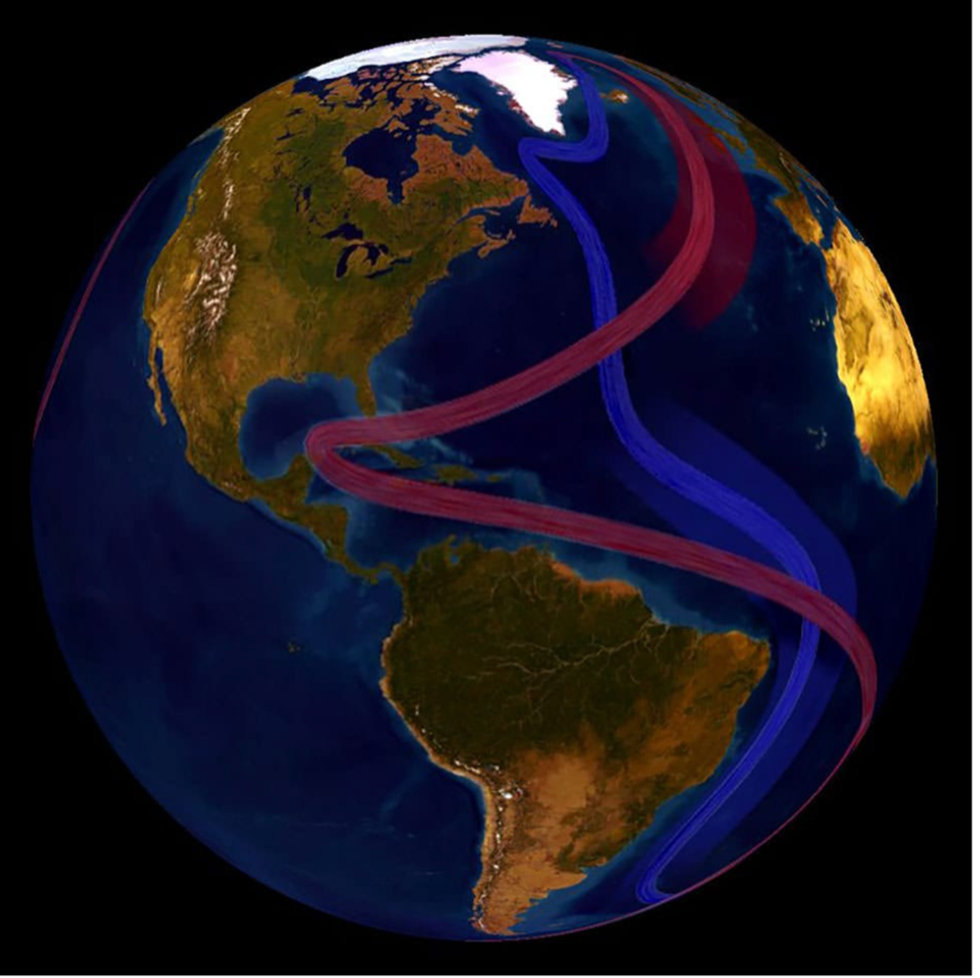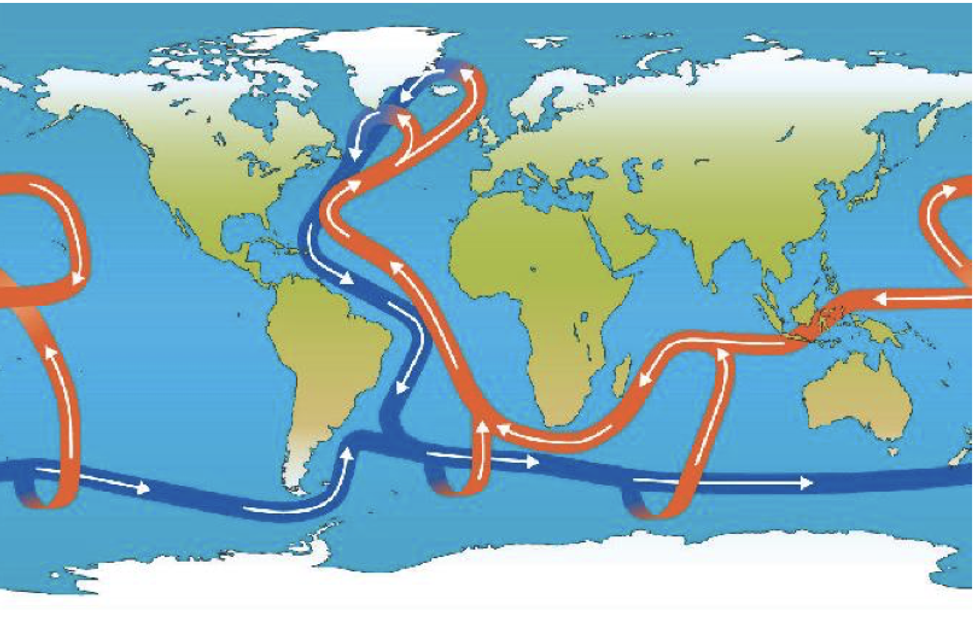UK weather: Collapse of ocean ‘conveyor belt’ could plunge British winters to new freezing lows
Complex changes suggest there will be a widespread cooling of the northern hemisphere
Don't Miss
Most Read
Trending on GB News
Long, Arctic winters could eventually become the norm as a conveyor belt of global ocean currents heads towards ‘collapse’ threatening Britain’s climate.
Changes to the Atlantic Meridional Overturning Circulation (AMOC) not seen for more than 10,000 years could alter weather patterns across Europe, scientists warn.
AMOC is a system of Atlantic ocean currents, including the Gulf Stream, the North Atlantic Drift, and the Canary Current–all crucial in maintaining the northern-hemisphere climate.
However, increasing global temperatures threaten a ‘tipping point’ which could, in years, trigger dramatic changes in weather patterns across the continent.
Research published this month in the journal ‘Science Advances’ warns a collapse of AMOC, though not an immediate threat, is a growing risk.
It would change the way ocean currents distribute heat around the globe, and consequently the climate–predominantly affecting Europe.

The global conveyor belt
NATIONAL OCEAN SERVICE
Journal author Rene M. Van Westen said: “This is bad news for the climate system and humanity as up until now, one could think that AMOC tipping was only a theoretical concept and tipping would disappear as soon as the full climate system, with all its additional feedbacks, was considered.
“The AMOC collapse dramatically changes the redistribution of heat (and salt) and results in a cooling of the Northern Hemisphere, while the Southern Hemisphere slightly warms.
“Reanalysis products indicate that the present-day AMOC is on route to tipping.”
The AMOC circulation system carries warm water from the tropics to the North Atlantic via a system of ocean currents.
Like a conveyor belt, it redistributes heat and energy around the global ocean network and contributes a stable climate.
Since 2004, ocean experts have reported small changes from year to year, which have not raised significant concerns.
However, the most recent report, which using a complex climate model reveals severe consequences in the event of collapse.

The Atlantic Meridional Overturning Circulation system
MET OFFICE
A gradual increase in global temperatures could hasten this outcome, scientists fear, impacting Britain’s climate, although this is unlikely this century.
Grahame Madge, a Met Office spokesman on climate change, said: "Recent research confirms that the AMOC has the potential to collapse if it is pushed beyond a 'tipping point'.
“But the weight of evidence is that the AMOC won't cross the tipping point in this century.
"The search is on for reliable early warning indicators to forewarn of an approaching AMOC tipping point.
“For now, there is no evidence that the AMOC is getting close to tipping.”
A Met Office spokesman added: “The AMOC is a system of ocean currents which plays an important role in the climate system by transporting warm water northwards in the Atlantic.
An AMOC shutdown would cause cooling of the northern hemisphere, sea-level rise in the Atlantic, an overall decrease in precipitation over Europe and North America, and a southwards shift in monsoons in South America.
“It is likely, based on current climate models, that the AMOC will weaken over the coming century, but a collapse of the AMOC before 2100 is thought to be very unlikely.”
Independent climate experts agree that a collapse of AMOC is a growing concern, and while it is not an immediate threat, could have devastating consequences..
Jim Dale, meteorologist for British Weather Services and social commentator, said: “At the moment, this is a talking point and there is an element of conjecture.
“But there is a real risk that we could be heading in this direction, and that would have serious implications for the climate and the UK weather.
“One consequence would be that we would be subject to vastly colder winters, as a new norm; in effect, we would be going into the freezer.”
A spokesperson for the US National Ocean Service added: “While research shows it is weakening over the past century, whether or not it will continue to slow or stop circulating completely remains uncertain.
“If the AMOC does continue to slow down, however, it could have far-reaching climate impacts.”









